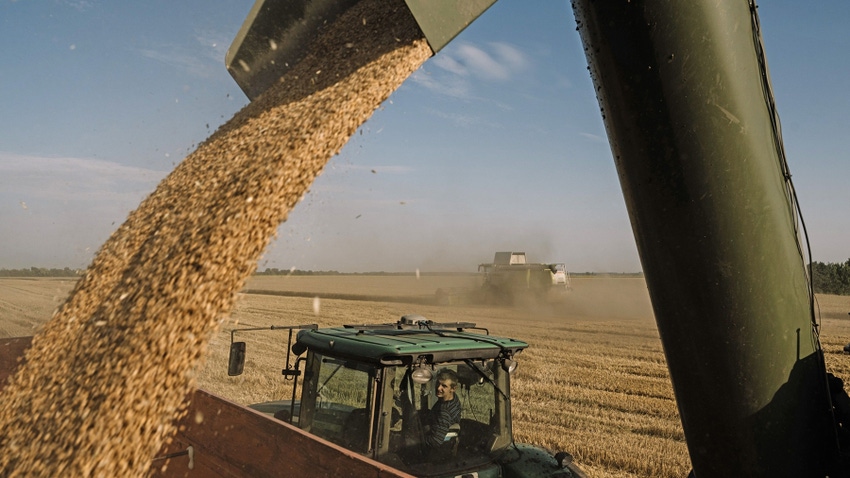
By Volodymyr Verbyany and Kateryna Choursina, with assistance from Lyubov Pronina, Katharina Rosskopf, Irina Vilcu, Andra Timu, Slav Okov, Piotr Skolimowski and Áine Quinn
Ukraine will move to challenge unilateral grain-import bans imposed by three of its European Union neighbors and weigh retaliatory measures as the dispute between war-time allies escalates.
The government in Kyiv will file a complaint to the World Trade Organization on Monday over measures taken by Poland, Slovakia and Hungary, Deputy Economy Minister Taras Kachka told Bloomberg. Ukraine is also considering measures that may affect products such as onions and apples from Poland and cars from Hungary if restrictions aren’t lifted by the end of Friday, he said.
“We are asking for acknowledgment that these actions are illegitimate,” Kachka said in an interview.
The three Ukrainian neighbors, some of which have been staunch supporters of the war-battered nation, defied the EU’s decision Friday to end a ban on grain purchases, citing the impact on plummeting prices for their markets.
Ukraine is pushing its closest EU neighbors to open their markets to its grain, oilseed and sunflower oil, exports that provide vital revenue. The bans have been blamed on slowing the transit of Ukraine’s goods via those countries to other markets, routes that have become even more important after Russia terminated a Black Sea grain corridor agreement in July. Before the war, Ukraine exported millions of tons of crops through its southern ports.
The unilateral decision by eastern European governments was met with condemnation by other EU members, whose agriculture ministers met Monday in Brussels.
“It’s part-time solidarity, I’d say,” Germany’s minister, Cem Oezdemir, told reporters. “If they feel like it, they show solidarity — if not, they don’t.” France’s Marc Fesneau called on the European Commission to take action “urgently and assertively.”
The bans won’t apply to Ukrainian products transiting through eastern EU states to third countries and the impact of Friday’s EU move - as well as the rapid pushback - on global markets is expected to be limited.
Polish election
But the political stakes are crucial. Poland, which Kyiv has especially singled out in recent weeks, is holding an election on Oct. 15, in which the ruling Law & Justice party may struggle to form a majority for a third term. The country’s farmers make up a significant portion of the party’s base.
“The EU’s decision is a bittersweet gift for us,” Polish Prime Minister Mateusz Morawiecki said at an election campaign event in Elk, northern Poland, on Friday. “I would prefer that they extended the ban, but they didn’t do it. Now we will extend it ourselves despite lack of their agreement.”
Romania, the fourth EU member state that shares a border with Ukraine, sidestepped a unilateral move, announcing an agreement with Kyiv on a temporary import freeze until the nations agree on joint licensing.
“We haven’t seen any Ukrainian grain entering the domestic market since the EU ended the ban on Friday,” Romanian Prime Minister Marcel Ciolacu told reporters in Bucharest Monday. He said the government will review a draft of a licensing deal.
Bulgaria’s decision to lift its ban triggered protests, with farmers blocking roads and border checkpoints with tractors and demanding that the government in Sofia extend a ban on grain and products including sunflower oil, dry milk and frozen fruit.
©2023 Bloomberg L.P.
About the Author(s)
You May Also Like




